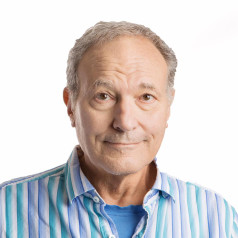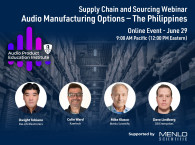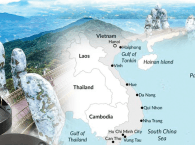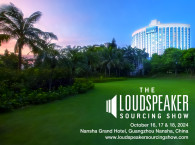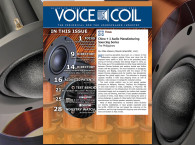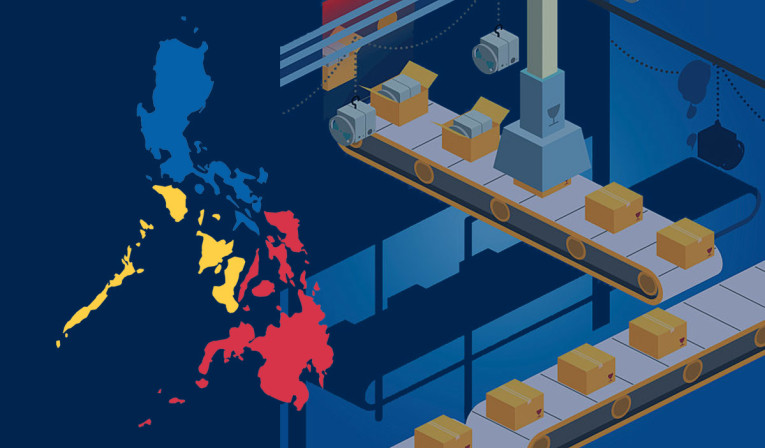
The most simple solution was to just spread speaker production to Malaysia, Vietnam, Thailand, the Philippines, or even look further to India, Cambodia, or Myanmar. Yet China’s strength is in its infrastructure for both materials and component supply such as magnets, low carbon steel, speaker cones, voice coil winding, and more. If your speaker assembler is outside of China, most likely it will be facing the same or worse challenges in supply of critical parts from Chinese parts manufacturers as Chinese speaker assembly factories.
Many of these alternatives to mainland China factories are recently established, or have greatly expanded since the tariffs. COVID-19 has not helped the maturing of the workforce, and the high transpacific shipping costs and delays from everywhere in Asia remain.
For these reasons and many more, we won’t be completely leaving China anytime soon, thus the strategy of China +1. Vietnam looked be a good bet due to its close proximity to China and close access to parts supply via air, sea, or land. Back in the September 2019 issue of Voice Coil, we explored the rapid growth of speaker assembly and audio products manufactured in Vietnam, yet many of these satellite factories are still shaking out the bugs. English communications can be a struggle and without the factory visits that usually are needed to straighten out tough issues, the problems have been compounded by Vietnam’s pandemic border closures, although for the time being that has finally passed.
Another Pacific Rim contender is the Republic of the Philippines, a democracy in Southeast Asia just south of Taiwan. The Philippines and the US are treaty allies under the Mutual Defense Treaty. The Philippines is the oldest security ally of the US in Southeast Asia and one of the five treaty allies of the US in the Pacific region. Most trade to the US is a few percent and most of the factories discussed in this article ship from the Special Economic and Free Trade Zones, such as the Cavite, Subic Bay, and Clark ports.
The Philippines is also the only country in Asia where English is the official business language, including for correspondence, contracts, and other documents. The most westernized country in Asia, it was part of the Spanish Empire for more than 300 years. After the Spanish-American war, the Philippines became a US territory for almost half a century (from 1898 until 1946). Sharing maritime borders with Taiwan to the north, Japan to the northeast, Indonesia to the south, Malaysia to the southwest, Vietnam to the west, and China to the northwest. The Philippines population is around 109 million people, making it the world’s 13th most populous country.
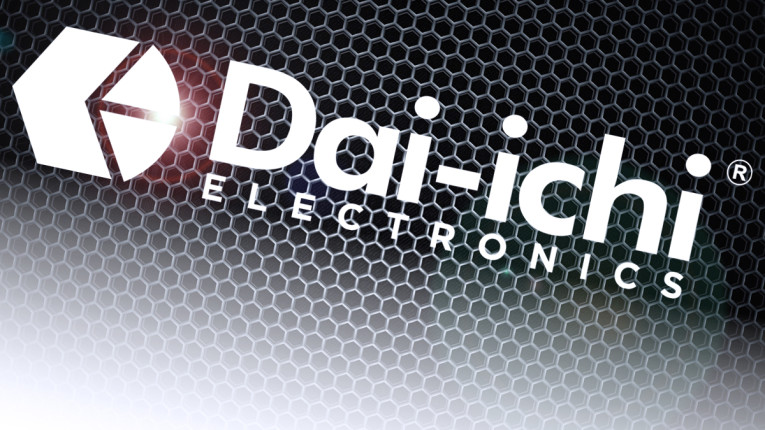
Dai-ichi
I have been traveling to the Philippines for the last 30 years working with Dai-ichi and AV-Leader. Dai-ichi Electronics Manufacturing was originally founded in 1972 as Micro Global Manufacturing Co — a speaker parts kit assembly operation. By 1976, it had expanded and changed its name to Dai-ichi, initially producing only price-driven OEM speakers. Gradually, Dai-ichi built a reputation for consistent quality and reliable delivery, focusing mainly on the Philippines’ domestic market.
In the late 1980s, Dai-ichi began to offer significantly higher quality OEM speakers. The management, led by its founder, Pablo Tobiano, opted for higher end products because the market was overrun by inferior goods from neighboring countries. Tobiano graduated with a degree in Electronic engineering, which enabled him to recognize the industry’s rapid transition from tubes to transistors, and he decided to focus on speakers where evolution was more gradual.
Tobiano worked for Pioneer in Japan (1968) and was involved in Completely Knocked Down (CKD) and Semi Knocked Down (SKD) processes for amplifiers, speaker systems, tape decks, record players, and car stereo production in Philippines and other countries. Years later, Dai-ichi had a joint venture with Panasonic for driver production and export back to Japan and was a subcontractor manufacturer supplying Foster of Japan.
During the early 1990s, Dai-ichi began a strong R&D push that continues today. I began my consulting services with Dai-ichi in 1992 on a handshake, and we celebrated 20 years together with an island-hopping tour in July 2012, and after 30 years we are still celebrating.... albeit at a distance.
For the Philippines, a new opportunity to flourish has arrived. Western buyers who once sourced from the Philippines are returning to the country for a second look. Existing customers are expanding the product lines Dai-ichi produces for them. For buyers and engineers looking for alternatives, this update on Dai-ichi will provide some insight into its current capabilities.
Dai-ichi still focuses on the details that many of China’s companies do not easily handle. Typically, it is Dai-ichi’s in-house component vertical production that provides the capacity to take on products with unique parts bin requirements. For example, a couple speaker brands have offered motorized, premium in-wall and ceiling speakers, which Dai-ichi provides. Dai-ichi also supplies outdoor speaker product lines, ribbon planar speakers for several high-end brand customers (as well as developed and produced the legendary OPPO PM-1 ribbon planar headphones).
Dai-ichi winds its own voice coils and even does in-house wire flattening for its wound on edge wire coils. Also in-house are state-of-the-art cone and spider fabrication, injection and roto-molding, a wood working factory, electroplating and powder coating, and other vertical operations. This is especially relevant for not just higher grade and complex projects but for stable production and delivery avoiding erratic supply from China. Dai-ichi’s main factory, R&D and offices are in Manila, with a production facility in the Cavite free-trade zone shipping port, just outside of Manila.
There is no issue with engineers migrating to competing companies and so new product development remains within the company, which is quite compelling. Even the most honest factories in China have engineers who leave with their customers’ trade secrets and future product plans.
Dai-ichi has taken a more profitable direction by developing design and production skills that differentiate its OEM factory from its competitors. It offers greater process control, including tighter production tolerances (especially for tweeters), higher power handling, and higher sensitivity. The company also offers unique products (e.g., planar speakers, weatherproof speakers, and high-excursion woofers). Dai-ichi has also taken a balanced geopolitical approach, building production bases in both the Philippines and in Shanghai, China. The unique, high-end products are made in the Philippines, while in Shanghai the focus is on high production runs of conventional speakers, using automated production lines.
The Shanghai base specializes in car audio systems, indoor/outdoor speakers, in-wall/in-ceiling speakers, marine speakers, and home hi-fi systems. The Philippines operation does R&D and tooling, short runs of high-value products (e.g., motorized in-wall speakers for top brands, high output woofers, OEM production of high-end ribbon line array movie theater speaker systems, and other products with high intellectual property levels). Recently, Dai-ichi added Radian Audio, a compression driver manufacturer in California, to the mix of its production capabilities.

AV-Leader
Another top manufacturer, AV-Leader, a well-known ODM/OEM of professional microphones and headphone offerings, also has its production base in the Philippines. Founded by CEO and owner Linda Kuo in 1988, with corporate and R&D offices located in New Taipei City, Taiwan.
To understand AV-Leader means getting to know Linda Kuo. In the 1980s, Kuo was the marketing manager at a large microphone factory. She recognized the opportunity to make “real” professional microphones, including measurement microphones. Kuo did not like what she saw as many companies began shifting production to China. She wanted trustworthy subcontract vendors and her understanding of the intellectual property control issues as engineers changed companies convinced her to base AV-Leader’s production in the Philippines.
During my first visit to AV-Leader about 30 years ago, I was horrified to see what I thought were perfect counterfeit microphones of many quality brands. I asked Kuo —someone with great integrity — how she could rationalize building for pirates. She responded that she had no interest in counterfeiters, and they had no interest in her products because they were too expensive. So everything being built was for the actual brands. Back in September 2002, I wrote a Voice Coil profile on AV-Leader, calling Kuo “the Queen of Microphones” and I updated the profile in the June 2013 issue.
While much has changed, much is also the same. Kuo is still a perfectionist, loved by her staff but she is very demanding. Going to lunch or dinner at a fancy restaurant with Kuo is a treat — she immediately takes charge. After everyone sits down, she heads to the kitchen for final “outgoing quality control”—vegetables fresh with not too much oil, and meat properly cooked. But my favorite story, which is also the best indication of Kuo’s personality, took place when I was watching her inspect her factory’s production of a German brand’s professional microphones as she questioned various aspects of the run. A tall, gray-haired engineer from the customer’s company finally yelled to her in his thick German accent: “Linda, it is good enough!”
Over the years, AV-Leader has become known for its exceptional microphone work; however, other efforts have focused on headphone and in-ear monitors (IEMs). Although AV-Leader is focusing on OEM products co-developed with its customers, it also offers a range of open headphone and earphone tooling to new customers who want a short time to market with minimal development costs. Products with open tooling include DJ, broadcast, audiophile, and fashion headphones. Headphone drivers include in-house and high-grade, Japanese-sourced components.
Its production base, Subic Technics, was established in Subic Bay, the Philippines, in 1994. Anyone serious about sound has probably used microphones, headphones, or other professional audio products produced by AV-Leader. Most of the leading European microphone brands use AV-Leader as a crucial parts vendor for labor-intensive quality microphones.
AV-Leader’s supply chain and operation are different from the almost universal Taiwan transplant model that utilizes Chinese production. Instead small custom craftsman shops near her Taipei Hsien office on the outskirts of Taipei are used. These are trusted long-term vendors she has worked with for decades, and the components they machine for AV-Leader are inspected, staged, and shipped to the Subic Bay operation for final assembly. Once the components arrive, 100% of them receive anechoic chamber testing. Conveniently, Subic Bay Airport is a few minutes from her factory.
Subic Bay has a wide range of hotels, and there are other many resorts in the area. The US Naval Base at Subic Bay was a major ship-repair, supply, and rest and recreation facility for the US military. In fact, the naval base was the US’s largest overseas military installation after Clark Air Base in the Philippines.
The base “officially” closed in 1991 although there always seemed to be a lot of US Navy personnel and equipment, including nuclear subs, hanging around. In any case, the naval base was converted into the Subic Bay Freeport Zone (SBFZ), a tax and duty-free zone. AV-Leader moved its operations there in 1994. In 2012, the Philippine government said the US military could use the base, as long as prior approval was granted. Today, Subic Bay hosts US ships, aircraft, and personnel on a semi-permanent basis.
Other international audio companies in the Philippines include Sonion and Knowles, which produce balanced armature earphone and hearing air transducers; Grandsun, which builds earphones and headphones; AAC, which makes microspeakers; and Kaertech, which makes earphones and electronics. (See the directory for contact information.) VC
This article was originally published in Voice Coil, August 2022
Philippines Audio Factory Directory
AAC Technologies
Cavite Philippines, General Trias, PH Cavite
Contact: Daniel Jansson (Director of Marketing, AAC Technologies, DanielJansson@aactechnologies.com)
www.aactechnologies.com/en
AAC Technologies Holdings, Inc. is one of the leading microspeaker manufacturers whose main operations are in China, but in recent years it has diversified its operations throughout Asia. In 2014, AAC Optics Philippines was established in Gateway Business Park in General Trias, Cavite for microspeakers.
AV-Leader Corp.
No. 24, Lane 90, Guiyang St, Taishan District
New Taipei City, Taiwan 243
Contact: Linda Kuo (President & General Manager,
lindak@avleader777.com.tw)
https://avleader.com.tw
Corporate HQ and engineering is in New Taiwan City, while the factory division is Subic Technics in Subic Bay Freeport Zone (SBFZ) Philippines. AV-Leader is a famous OEM/ODM for professional microphones and headphones whose headquarters and engineering is in Taiwan and manufacturing has been long established in Subic Bay Philippines.
Dai-ichi Electronics Manufacturing Corp.
160 Floor, Mariano Ave, Pasig, 1612 Metro Manila Philippines
Pasig City and Cavite, Philippines
Contact: Pablo Tobiano CEO (ptobiano@daiichielectronics.com)
www.daiichielectronics.com.ph
Dai-ichi is a highly respected OEM and ODM for many leading speaker brands, both consumer and pro-sound. One of the only “organic” speaker factories in the Philippines, Dai-ichi was established more than 40 years ago.
Grandsun Advanced Electronics Phils. Co., Inc.
Panorama Building I, Panorama Compound Lima Technology Center, SEZ, Apolinario Mabini St., Santiago, Malvar Batangas 4233
Contact: Giovanni Gapasin (Vice President Operations, giovanni@grandsun.com)
Grandsun is a Chinese transplant manufacturing of earphones and headphones in the Philippines.

Kaertech Electronics Philippines, Inc.
Building 3, EZP Compound Laguna Technopark, Biñan, 4024 Laguna, Philippines
Contact: International Representative Dave Lindberg (lindberg@db-ent.com)
www.kaertech.com
Kaertech is an OEM/ODM manufacturer of earphones, speaker systems, and audio electronics. Based in Hong Kong, Philippines, France and the US (San Diego), Kaertech offers full turnkey services with state-of-the-art product design and manufacturing services. From R&D to engineering and manufacturing with a strong focus on electronics – from schematic to board layout – the company is able to offer support in the early stages of product development and help companies refine product specifications. Beyond product development, Kaertech optimizes the whole product ecosystem, and helps engineer embedded software for connected devices, cloud services, mobile applications and protocols. The company’s state of the art System Assembly Manufacturing facility in the Philippines specializes in high end precision manufacturing.
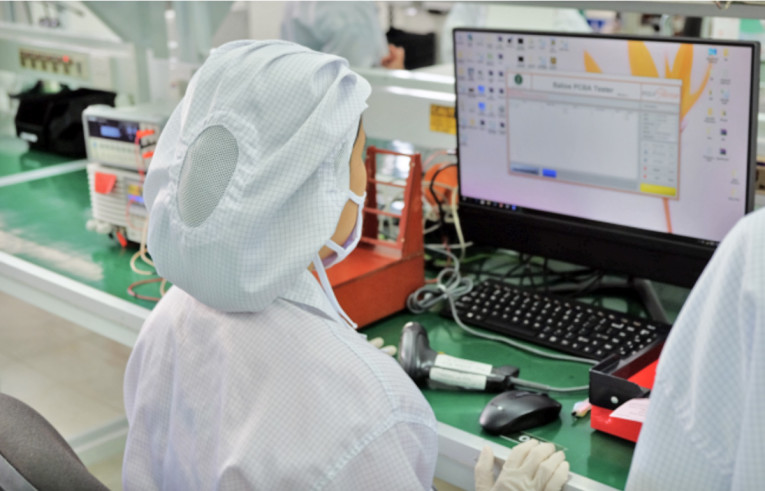
Knowles Corp.
Cebu Light Industrial Park, Basak, Lapu-Lapu City
Cebu Philippines
info@knowles.com | www.knowles.com
Knowles is famous for its pioneering development of MEMS mics and balanced armature transducers for earphones, hearing aids, mobile phones, and IoT devices. Knowles has manufacturing sites in various locations including the Philippines.
Sonion Philippines, Inc.
First Philippine Industrial Park, Inc. Lot 30-A Phase 1B, Road Lot 8. Barangay Ulango Tanauan City, Batangas Philippines 4232
P: +63 43 430 8888
Contact: Greg Hovland (Key Account Manager at Sonion)
sonionph@sonion.com | www.sonion.com
Since 1974, Sonion’s components and solutions have been helping people listen to each other, to their bodies, to their environment and to the world.


